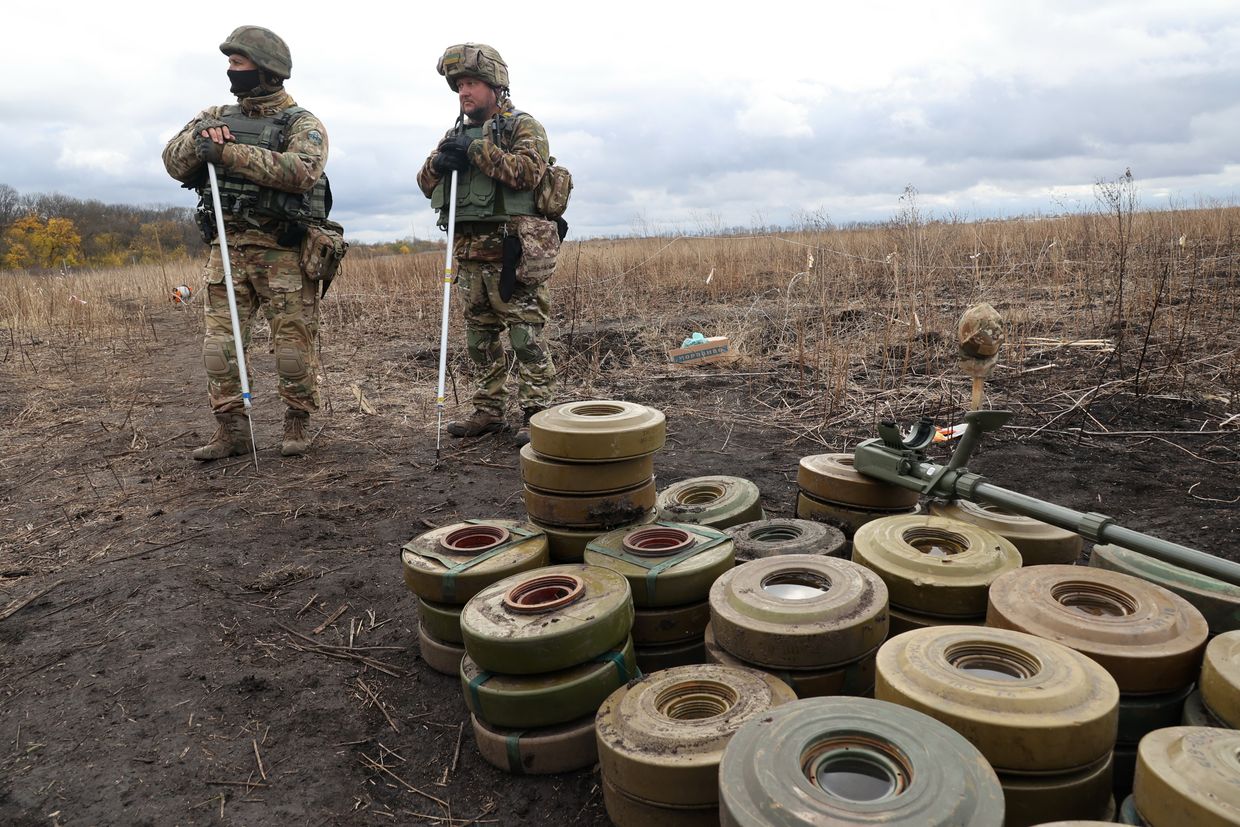Lithuania, Finland pivot to landmine production, potentially supplying to Ukraine, Reuters reports

Lithuania and Finland plan to begin domestic anti-personnel mine manufacturing in 2026, with some of the supplies potentially earmarked for Ukraine to counter the Russian threat, Reuters reported on July 9.
The two NATO members will begin manufacturing once they complete withdrawal from the 1997 Ottawa Convention banning such mines, a six-month process that underscores Europe's shifting defense priorities.
Ukrainian forces have increasingly relied on landmines for defensive operations, with Kyiv also withdrawing from the Ottawa Convention to "defend itself better against Russia."
Lithuania plans to order tens of thousands of anti-personnel mines, spending "hundreds of millions of euros" on the weapons systems, Deputy Defense Minister Karolis Aleksa told Reuters.
The Baltic country, which shares a 274-kilometer (170-mile) border with Russia's Kaliningrad exclave and 679 kilometers (422 miles) with Russia's close ally Belarus, will position its domestic industry as a primary supplier.
"Once production is established, Lithuania will be in a position to supply others including Ukraine," said Vincas Jurgutis, head of Lithuania's defense industry association, Reuters reports.
Lithuania's parliament approved withdrawing from the Ottawa Convention banning anti-personnel mines on May 8, with the withdrawal taking six months to complete the full exit from the treaty.
Finland, which shares NATO's longest border with Russia at 1,340 kilometers (833 miles), views domestic production as essential for supply security, aiming to increase defense spending to 3% of GDP by 2029.
In an interview with Reuters, Finnish parliamentary defense committee chair Heikki Autto called landmines "highly effective and very cost-efficient weapons systems" and confirmed Finland would consider supplying Ukraine.
"It is not only right and our duty to support Ukraine, it is also important for Finland's own security," Autto said.
Helsinki previously held over 1 million anti-personnel mines before joining the Ottawa treaty in 2011.
According to Reuters, the countries are relaunching production amid growing European fears that Russia's military goals extend beyond Ukraine, prompting increased NATO defense spending as demanded by U.S. President Donald Trump.
In March, Estonia, Latvia, and Poland also announced their intention to withdraw from the Ottawa Convention, as the security situation in the region has "fundamentally deteriorated" and military threats to NATO member states bordering Russia and Belarus have "significantly increased."
These countries are not yet launching mine production, though they maintain manufacturing capabilities that could be activated if required.
Polish private munitions manufacturer ZSP Niewiadow told Reuters it intends to resume large-scale anti-personnel mine production by 2027, with new facility investments already underway.
Anti-personnel mines explode when triggered by contact or movement, threatening both soldiers and civilians long after conflicts end. Anti-mine groups have criticized the countries' decisions to abandon the treaty due to these lasting dangers.













